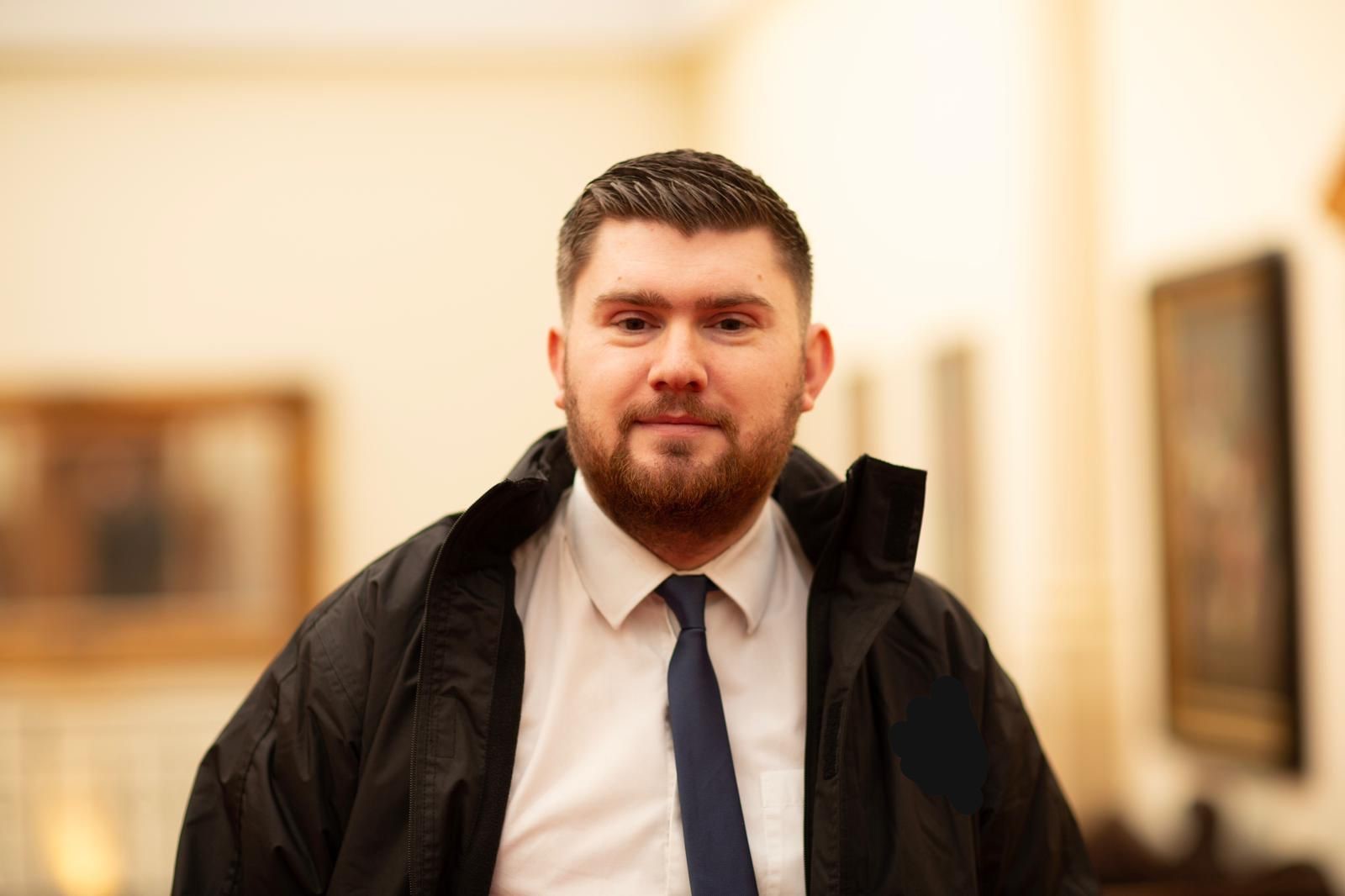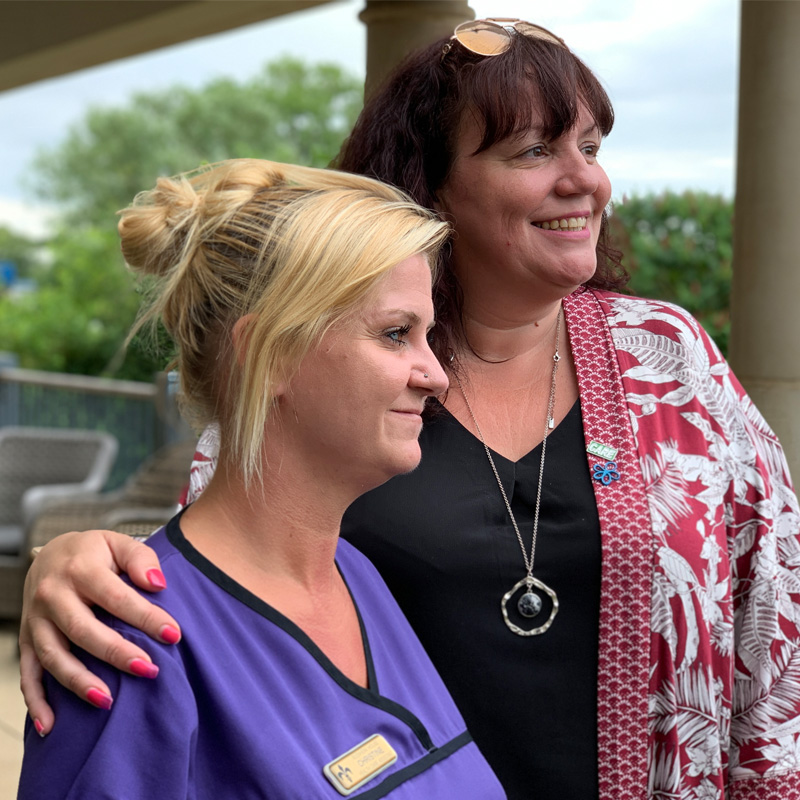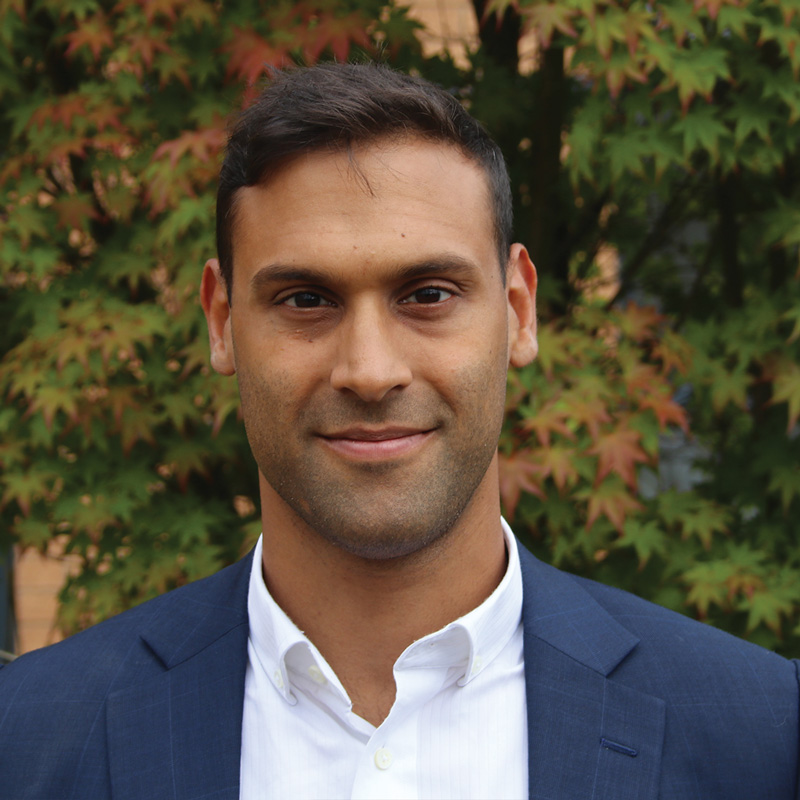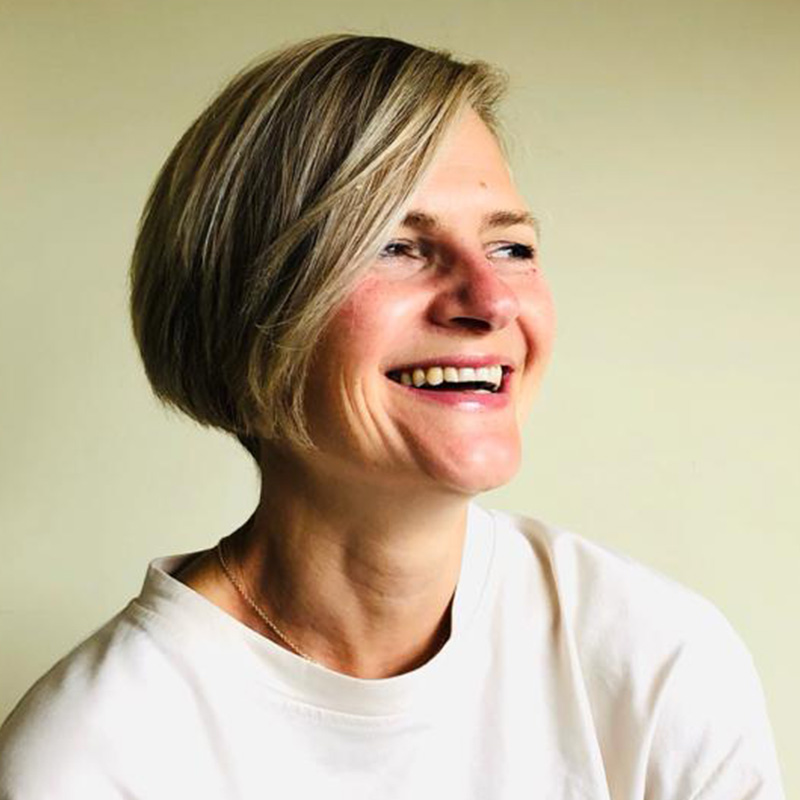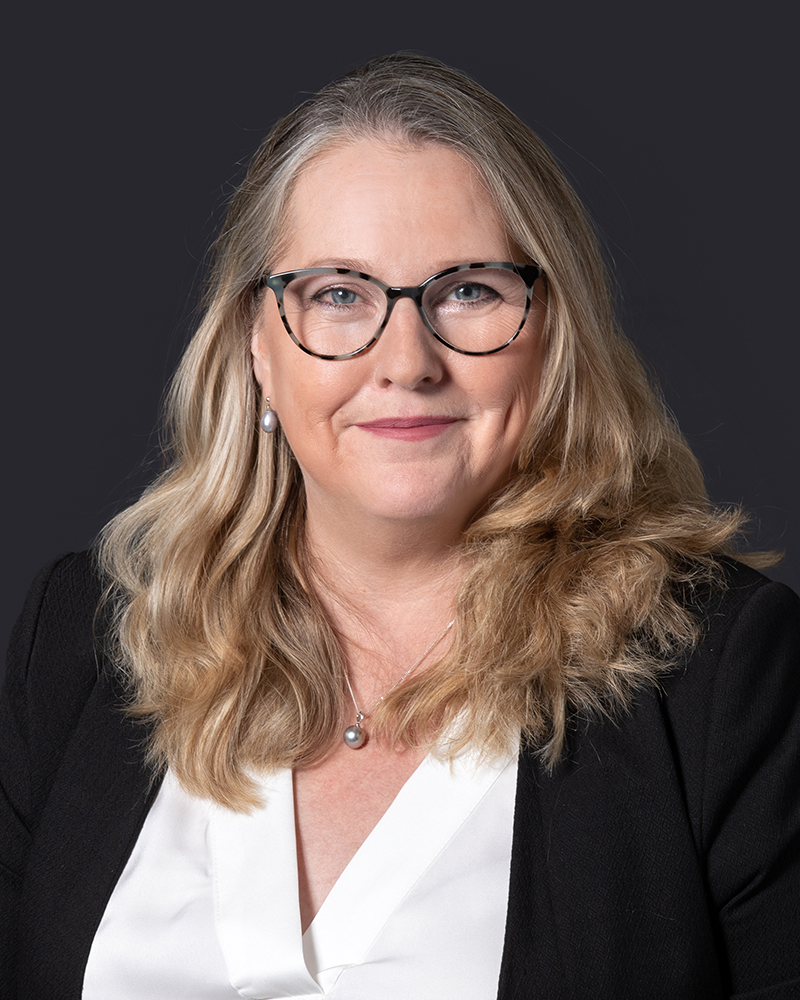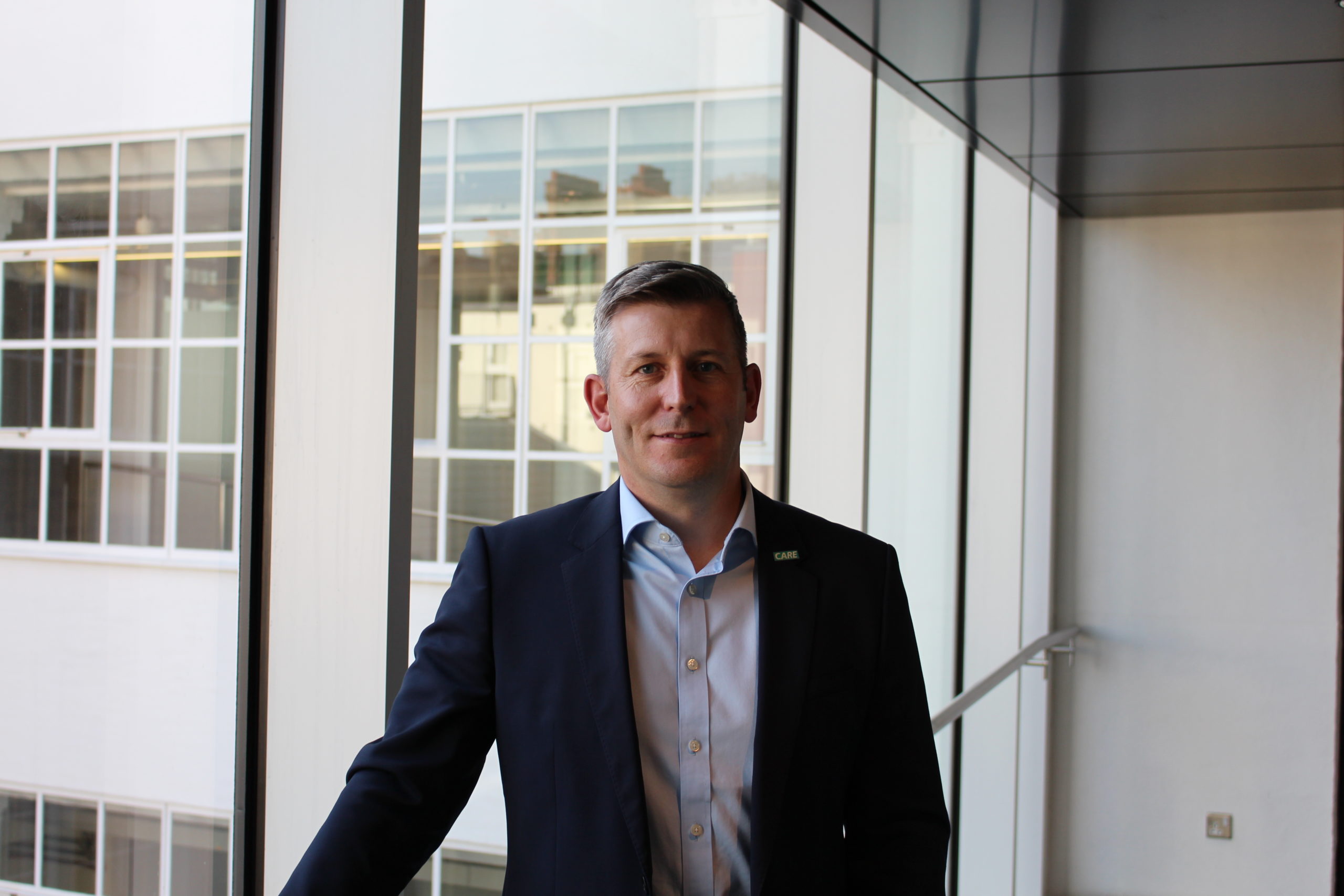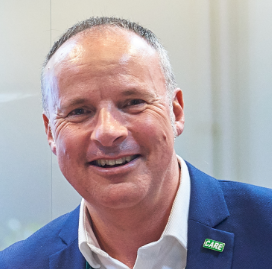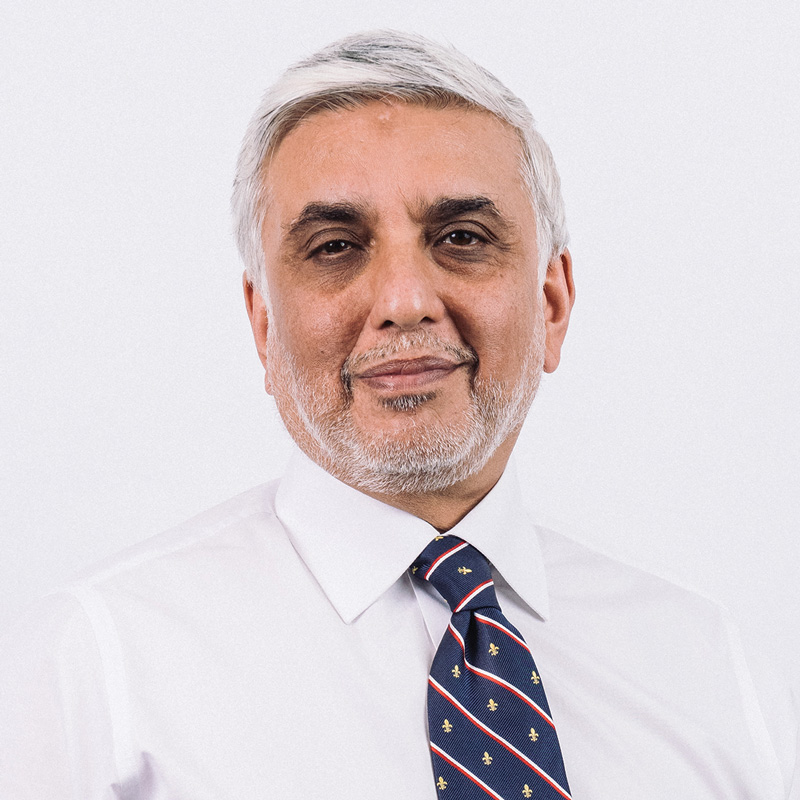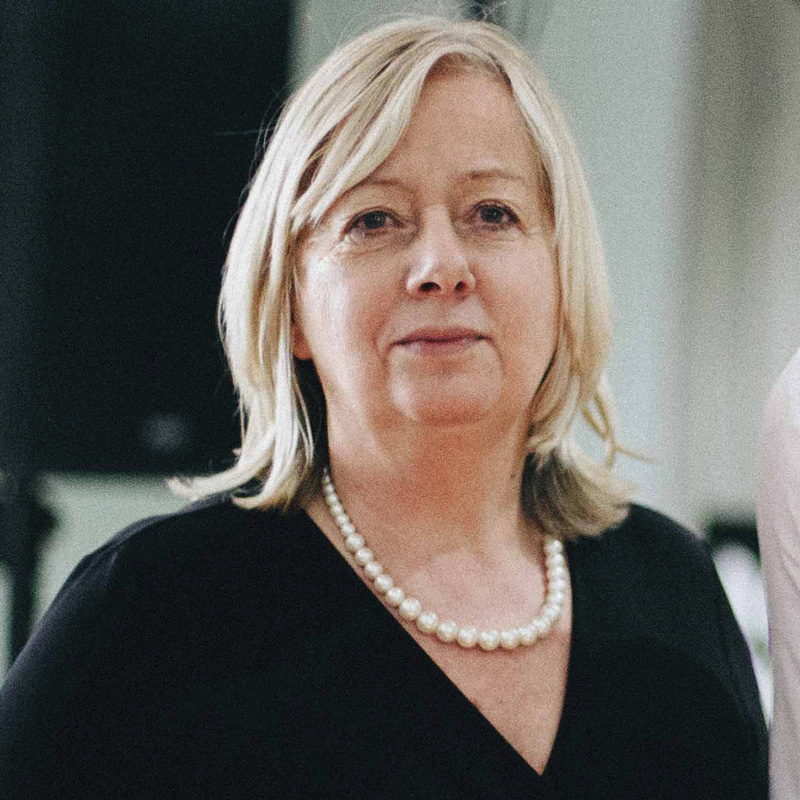Our Vice-Chair Jonathan Freeman has kindly shared with us his story of supporting his mother, Gillian after she was diagnosed with dementia as a part of Alzheimer’s Society, Alzheimer Action Week.
As a lover of languages, it was devastating for Jonathan to see his mother’s decline after she was diagnosed with mixed dementia. But the fight he faced for his mother’s care was even worse. After she sadly passed away, Jonathan is calling on Government to keep its promise and rebuild the social care system.
My mum, Gillian, was a fantastic woman. She cared so deeply about every aspect of her family’s lives and was there for us at every twist and turn, including as a carer to my Dad, who lived with dementia and a myriad of physical conditions.
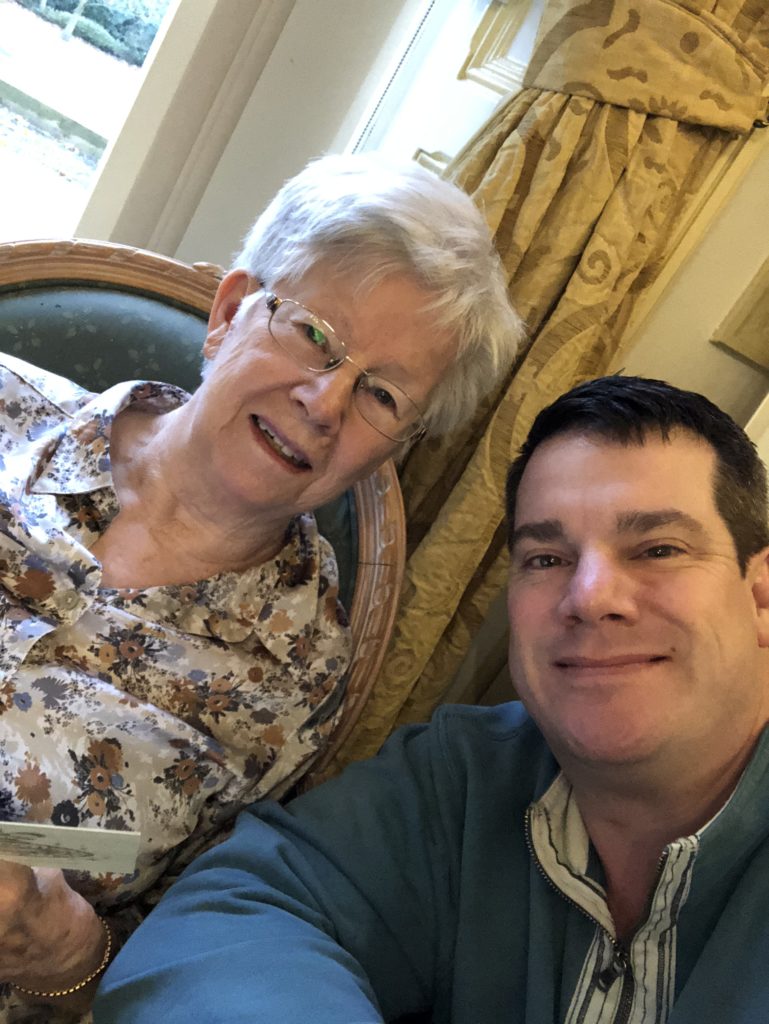
Following Dad’s death, I had hoped that Mum would have an ‘Indian Summer’ with the opportunity to do all the things she’d not been able to do during years of caring for her husband. Perhaps she could have gone to those countries she’d always wanted to visit, continued her studies with the University of the Third Age, and spent more time with her family and friends, all of which she loved.
But in 2012, after my repeated pleas to her GP triggered by my concerns and those of other family members, Mum was diagnosed with dementia as well.
What followed Mum’s diagnosis is, sadly, an example of the failings of a social care system that needs to be urgently fixed.
By the time the diagnosis was finally made, Mum’s dementia was fairly well-advanced. After six months living independently at home, Mum’s condition had hit her language, making it hard to communicate with her. A former Head of Languages at a secondary school, words and linguistics were her passion. It was so cruel to see her unable to string a sentence together, knowing she, and her words, were still there but I couldn’t hear them.
It was clear that Mum wouldn’t be able to live on her own for too much longer so my brother and I began the search for care homes in the villages close by. But we hadn’t bargained on just how quickly we would need to move her. Out of the blue, I got a call from the ambulance service. They had found Mum on her own, far from home, and by the end of the day, I had driven over to her home and we moved her in to a local care home.
Sadly, this care home really didn’t work out for Mum. There were a number of bad mistakes made and my Mum didn’t get the level of care she deserved or needed.
Coming to terms with Mum’s diagnosis and seeing the changes in her as she began to forget me was challenging. But it was even harder knowing that in the place where she should have felt safe and secure, she just wasn’t getting the care and support she needed. So, even though I knew the upheaval wouldn’t help her, we moved Mum to another home.
Feelings of confusion, desperation and isolation don’t just affect the 850,000 people with dementia, they’re symptoms the people closest to them experience too.
The new home was excellent and the care she received from the staff was superb. She was really enjoying the new home and her new friends – even though she was convinced that the other residents were her pupils!
Unfortunately, Mum’s dementia was progressing. She had a heavy fall breaking her leg in two places, and Mum forgot how to walk. She was unable to communicate, had little mobility, and soon became incontinent and unable to feed herself.
Prior to this, care home staff had believed she may be eligible for Funded Nurse Care (FNC) to finically support her additional care needs, but, as her needs grew, they were almost certain.
To secure the care and support mum needed and deserved, we began the process of applying – a process which should be simple for those in a period of crisis.
Initially, we were faced with a six month wait for an assessment after referrals and delays slowed the process down. At the end of the assessment, the assessor told me that Mum should receive FNC support and even that she would recommend it be back-dated due to the delays in processing the application. After waiting and waiting for a formal response, I was told that the assessor’s report was never filed due to an administrative mistake. The review team, who hadn’t assessed her or seen her in person, consequently, went against the assessor’s recommendation and rejected her application.
At least three expert assessors have said that Mum’s condition merited financial support for her nursing care, yet after paying for an independent consultant, Mum’s case was once again rejected and the same conclusion was also drawn a year later.
(image break)
While I knew that her care would be expensive, I was not prepared for quite how expensive it was.
With Mum and Dad both working as teachers, they had saved up as much as they could for their future and care needs, but it was not enough. My brother and I soon needed to rent out Mum’s home. But one month’s rental of her home covered less than one week of care home fees.
As we could see that her care home fees were rapidly exhausting her savings, we had to sell mum’s home. With the support of the FNC allowance, Mum’s care would have been cost neutral, protecting her home and her assets. But now, we not only face the financial cost of care, but the human cost too.
For loved ones such as me and my brother, the care system left us confused and ill-supported to navigate the choices both we, and mum, had to make, and access the care she so desperately needed.
Battle after battle, I felt worn down – why was accessing a system put in place to support people in a time or need so difficult?
It was a truly, truly awful experience
My mum passed away in January 2021, just two months before the latest appeal rejection. But until things change, a dementia diagnosis will continue to claim more than one life, as the families facing dementia feel its destructive effects.
At a time when all I wanted to do was look after Mum, I spent several years wrangling with an incompetent and ultimately unfair system. We experienced failing after failing in our fight to get support for Mum, and even now, as we learn to live without her, the process to secure the appropriate support that she deserved is still ongoing.
I should not have had to fight for care, it placed great stain on me and my family, and it doesn’t have to be this way.
In his first speech as Prime Minister, Boris Johnson said, “we will fix the crisis in social care once and for all.” I am simply asking the Government to keep its promise. Making the legacy of this pandemic the long-awaited Government plan to rebuild a social care system we want to grow old in – now and for future generations.
Mum deserved this, I deserve this and as do thousands of families just like ours. Because while dementia isn’t curable yet, the care system is.



















